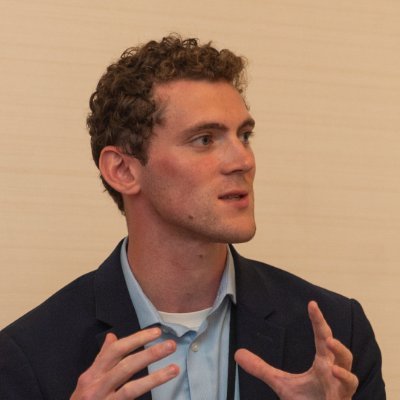
Josh Gottlieb
@GottliebEcon
Followers
3K
Following
105
Media
7
Statuses
173
Economist @UChicago @HarrisPolicy @BeckerFriedman & @nberpubs. Researching doctors, nurses, insurance, cities & more
Chicago, IL
Joined June 2011
Predoc opportunity in health/labor/public economics at @BeckerFriedman @UChicago: https://t.co/pnkwRPzYqd Please share widely!
job-boards.greenhouse.io
Chicago, IL
0
4
11
Rather than reducing the student loan burden for all medical students, efforts from some schools to create a 3-year track for general medicine students is a real solution to the primary care shortage. It creates a strong, targeted incentive for students to prefer primary care:
2
6
22
Dramatic news from @CMSGov today---these decisions spill over into private insurance https://t.co/a76HnmmyxL (w/ @jeffreypclemens @JPolEcon) and matter for talent allocation: https://t.co/4IO0zbDW4N
@QJEHarvard Is this good or bad? Depends on which specialties need talent most.
1
3
11
Timely read from in @nytimes on the way health care jobs remade the economy, and how the GOP megabill could dent that jobs engine. https://t.co/6hf3ZakzMY 1/2
nytimes.com
Medicine is now the nation’s largest employer, but its growth may be slowing.
2
3
4
Great story/charts from @lydiadepillis @christinezhang on how health care ate the American economy. This pair of maps is especially striking.
9
71
184
Very clear article by @lydiadepillis @nytimes discussing our @BeckerFriedman / @nberpubs working paper and other aspects of healthcare job growth. For more detail, the full paper together w/ @nealemahoney @SIEPR @kevinrinz @UdalovaVictoria is here:
For the few years I've been covering jobs reports, and one sector typically rises above the rest, quietly hiring by the thousands: Health care. How taking care of humans became the biggest employer in America, and what it means for the rest of us. https://t.co/ZlO1q6sSJi
0
7
14
Thanks for having me and for organizing a fantastic conference and panel. I talked about how perceptions of the monetary policy framework have changed during the recent inflationary experiment and beyond, and why it matters. #ECBForum @ecb @michaelbauer_hh
🔵 Watch live: the #ECBForum on Central Banking panel discussion on the current challenges for central bank communications - Philip R. Lane - Alessandro Galloni - Carolin Pflueger @CarolinPflueger - Anna Seim - Alan Taylor Follow the event https://t.co/abS583AqH6
1
1
16
Very clear article by @lydiadepillis @nytimes discussing our @BeckerFriedman / @nberpubs working paper and other aspects of healthcare job growth. For more detail, the full paper together w/ @nealemahoney @SIEPR @kevinrinz @UdalovaVictoria is here:
For the few years I've been covering jobs reports, and one sector typically rises above the rest, quietly hiring by the thousands: Health care. How taking care of humans became the biggest employer in America, and what it means for the rest of us. https://t.co/ZlO1q6sSJi
0
7
14
For the few years I've been covering jobs reports, and one sector typically rises above the rest, quietly hiring by the thousands: Health care. How taking care of humans became the biggest employer in America, and what it means for the rest of us. https://t.co/ZlO1q6sSJi
nytimes.com
Medicine is now the nation’s largest employer, but its growth may be slowing.
12
68
137
Examining the impact of reducing the administrative fragmentation of billing and payment by studying a Medicare reform that consolidated billing processes across service types, from @rileyleague and @maggieshi311
https://t.co/u4q6llpR6Z
16
12
22
New work on administrative burdens from @rileyleague @maggieshi311
The idea that the cost of healthcare could easily be reduced by cutting unnecessary admin is too good to be true: https://t.co/MZGsBm7Rek
0
3
17
On May 1–2, BFI’s Health Economics Initiative Conference brought together faculty, researchers & students to share new work in health economics. Organizers: @GottliebEcon & @ProfNoto ; Keynote: Jonathan Skinner (Dartmouth). https://t.co/HOnZNneDdS
#HealthEconomics #EconTwitter
0
1
1
Thanks to all of our thoughtful speakers, attendees, keynote Jon Skinner @DartmouthEcon, co-organizer @ProfNoto, and the @BeckerFriedman staff for an outstanding conference!
On May 1–2, BFI’s Health Economics Initiative Conference brought together faculty, researchers & students to share new work in health economics. Organizers: @GottliebEcon & @ProfNoto ; Keynote: Jonathan Skinner (Dartmouth). https://t.co/HOnZNneDdS
#HealthEconomics #EconTwitter
0
0
8
📢Heavily revised working paper on AI + Zoning — with @AlexBartik and @DMilo75, we have a new draft of our paper which expands on our method to understand housing regulations with AI. Incudes a new public data release with more housing regulation data:
14
64
217
#QJE May 2025, #8, “The Earnings and Labor Supply of U.S. Physicians,” by Gottlieb (@GottliebEcon), Polyakova (@MariaAPolyakova), Rinz (@kevinrinz), Shiplett, and Udalova (@UdalovaVictoria):
academic.oup.com
Abstract. Is government guiding the invisible hand at the top of the labor market? We use new administrative data to measure physicians’ earnings and estim
1
2
8
Healthcare jobs have grown 2x faster than the overall labor market since 1980 Healthcare overtook retail to become largest industry by employment in 2009 New working paper with @GottliebEcon, @kevinrinz, and @UdalovaVictoria w/ key facts on the rise of healthcare jobs
1
1
1
Healthcare employment in the US has skyrocketed since 1980. Healthcare is a middle-class jobs engine, but "manufacturing-to-meds" transitions are not saving the Rust Belt, from @GottliebEcon, @nealemahoney, @kevinrinz, and Victoria Udalova https://t.co/wRsuEaXGG0
3
6
22
Much more in the draft. Check it out 👇 Ungated paper: https://t.co/wTFFPIJOPV NBER WP:
nber.org
0
1
15
We find these high-profile manufacturing-to-meds examples are outliers that do not represent a systematic trend. Healthcare job growth has offset roughly 11% of the decline in manufacturing jobs. This is roughly what you would expect based on its share of the workforce.
1
4
13
Politicians, the press, and researchers have advocated for a "manufacturing to meds" pivot in the Rust Belt. Pittsburgh, PA, Cleveland, OH, and Rochester, NY are cited as prominent success stories.
1
1
9


















